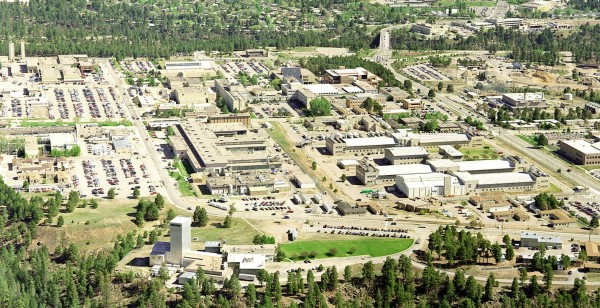By Rick Wayman, Director of Programs & Operations, Nuclear Age Peace Foundation.
During the lunch hour on the final day of the ICAN Civil Society Forum in Oslo, around 150 people attended a panel discussion on “Ethics in International Politics.”
At the end of the panel discussion, Fr. John Dear briefly brought up an important example that shocked many in the audience. He said that many of the employees of Los Alamos National Laboratory (LANL), near where he lives in New Mexico, believe that they are engaged in an ethical – perhaps the most ethical – line of work.
The definition of “ethics” through which I view the issue of nuclear weapons is this:
That branch of philosophy dealing with values relating to human conduct, with respect to the rightness and wrongness of certain actions and to the goodness and badness of the motives and ends of such actions.
How can LANL employees possibly believe their work is ethical? Each nuclear weapon that LANL employees have created, monitored and modernized from the dawn of the Nuclear Age until today have the capacity to destroy hundreds of thousands – or more – lives in a flash. The resulting nuclear famine from even a relatively small regional exchange of nuclear weapons would kill hundreds of millions more people around the world.
The answer to this question lies in their belief in nuclear deterrence – that the threat of massive retaliation by Country B prevents Country A from initiating hostilities. Therefore, nuclear weapons keep the peace and will never be used.
As a signatory to the Santa Barbara Declaration against nuclear deterrence, I do not believe that this idea about human behavior holds in all cases or can be relied on to keep us safe. A conscious effort must be made by nuclear weapons proponents to ignore the well-documented catastrophic humanitarian consequences of nuclear weapons in order to consider nuclear weapons “ethical.”
At the 2010 Non-Proliferation Treaty Review Conference, NAPF President David Krieger asked U.S. Undersecretary of State Ellen Tauscher whether the U.S. would be willing to conduct a “human impact statement” on the use of nuclear weapons. Ms. Tauscher’s answer was simple: “We have no intention of doing this.”
This willful ignorance continues today: the P5 (U.S., Russia, U.K., France and China) made a collective decision to avoid the Norwegian Foreign Ministry’s conference on the catastrophic humanitarian consequences of nuclear weapons, which begins on March 4. To participate in it would shatter their carefully-crafted illusion that the “motive” and the “end” of maintaining even one nuclear weapon is ethical.
At least 132 countries will come together in Oslo on March 4-5 to examine the humanitarian impacts of nuclear weapons. The scientific evidence is beyond doubt. No one could hide from the catastrophic humanitarian consequences of nuclear weapons should a nuclear exchange take place.
The P5 cannot hide forever from the fact that humanity demands the abolition of nuclear weapons. A Nuclear Weapons Convention for the phased, verifiable, transparent and irreversible elimination of all nuclear weapons worldwide is the only ethical option.






